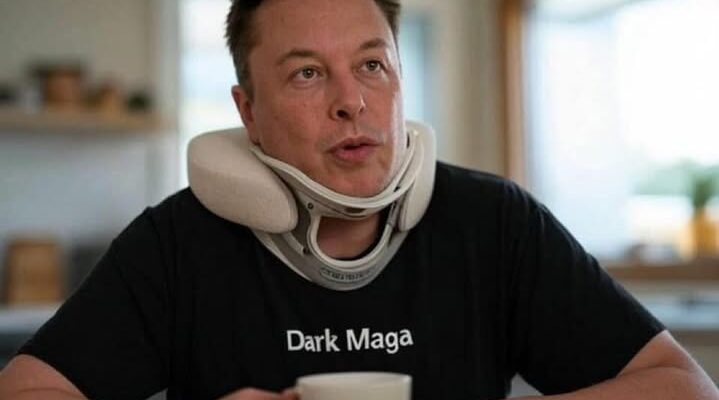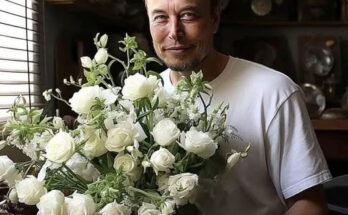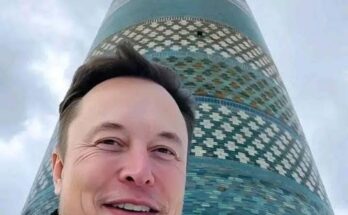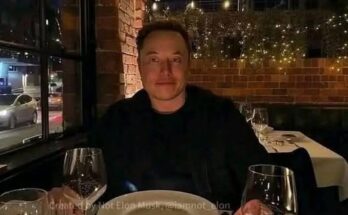Long before Musk became a millionaire at 28 or the driving force behind Tesla and SpaceX, he put himself through a unique experiment: surviving on just $1 a day.
As he explained in a 2015 interview with Neil deGrasse Tyson on the StarTalk podcast, this was less about necessity and more about proving that he could thrive as an entrepreneur, even with almost nothing.
“My threshold for existing was pretty low,” Musk told Tyson.
As a freshman and sophomore at Queen’s University in Ontario, Musk lived on a monthly food budget of $30, relying heavily on hot dogs, oranges, pasta and jarred tomato sauce.
Occasionally, he added green peppers into the mix to break the monotony. “You sort of just buy food in bulk at the supermarket,” he explained. But he admitted, “You get really tired of hot dogs and oranges after a while.”
For Musk, the experiment wasn’t about enjoying life or maintaining good health but about proving a point to himself. He wanted to know whether he could survive on minimal resources and eliminate fear of financial instability as he pursued his entrepreneurial dreams.
“If I can live for a dollar a day – at least from a food cost standpoint – it’s pretty easy to earn $30 in a month,” he reasoned. “So, I’ll probably be OK.”
In hindsight, Musk acknowledged that the experiment might not be as feasible today as it was in the 1990s.
Speaking to Business Insider, he warned, “I would not encourage anyone to live on $1 a day. That would not be super fun. Also, I did this back in 1990, so a dollar went a lot further back then.”
Adjusted for inflation, $1 from back then is equivalent to about $2.42 today, meaning Elon Musk’s $30 monthly food budget would amount to roughly $72.60 in 2024 dollars.
To put it into perspective, according to Chowhound, a 15-ounce pack of Oscar Mayer hot dogs costs about $3.94 today. While Musk’s frugal experiment in the early ‘90s might have been feasible, replicating it now would be significantly tougher – and likely less enjoyable.
As Tyson pointed out during the podcast, living on so little was “a starting point to launch anywhere you want to go.” Musk agreed, calling it an essential step in his path toward building companies that would one day reshape industries.
“In America,” Musk said, “it’s pretty easy to keep yourself alive.
Elon Musk’s experiment of surviving on just $1 a day is a fascinating glimpse into the mindset that helped shape his future as one of the world’s most ambitious innovators. It wasn’t just about frugality; it was a deliberate exercise in mental fortitude, testing his ability to embrace risk and uncertainty as he pursued his entrepreneurial dreams.
Key Takeaways from Musk’s $1-a-Day Experiment
- Resilience Through Simplicity
Musk’s willingness to live on a bare-minimum budget demonstrated his ability to strip life down to its essentials. By proving to himself that he could survive on so little, he effectively removed the fear of failure from his entrepreneurial equation. This mindset allowed him to take bold risks later in life, from betting his fortune on Tesla and SpaceX to envisioning interplanetary colonization. - Financial Fearlessness
By eliminating the worry of financial instability early on, Musk could focus on innovation and ambition without the constant pressure of material survival. This psychological freedom is an underrated yet critical component of successful risk-taking. - The Value of Experimentation
This self-imposed challenge wasn’t necessary—it was a deliberate choice. Musk’s ability to treat life as an experiment, where he could test his limits, learn, and adapt, mirrors his approach to business. Whether it’s launching reusable rockets or electric vehicles, Musk’s career has been defined by bold trials and iterative improvements. - Time and Inflation
While Musk’s frugality worked in the 1990s, replicating it today would be much harder. Inflation has significantly raised the cost of living, and subsisting on $1 a day is no longer realistic in most parts of the world. Adjusted for inflation, his $30 monthly food budget would now be about $72.60—a figure still challenging but slightly more feasible. - Perspective on Privilege
Musk’s statement, “In America, it’s pretty easy to keep yourself alive,” underscores the relative accessibility of resources in developed nations compared to other parts of the world. However, this perspective may not account for systemic barriers and the challenges faced by those in extreme poverty today.
A Starting Point for Greatness
As Neil deGrasse Tyson pointed out, living on so little was a foundation for Musk to build his entrepreneurial mindset. Musk’s experiment served as a mental reset, equipping him with a level of resilience that would later empower him to push through the immense challenges of building Tesla, SpaceX, and other ventures.
The Bigger Lesson
Musk’s frugal experiment is less about the specifics of living on $1 a day and more about cultivating the confidence to face hardship. By showing himself that he could endure minimal living conditions, he gained the courage to dream big without being held back by the fear of financial instability—a lesson that remains as inspiring today as it was when he first undertook the challenge.



